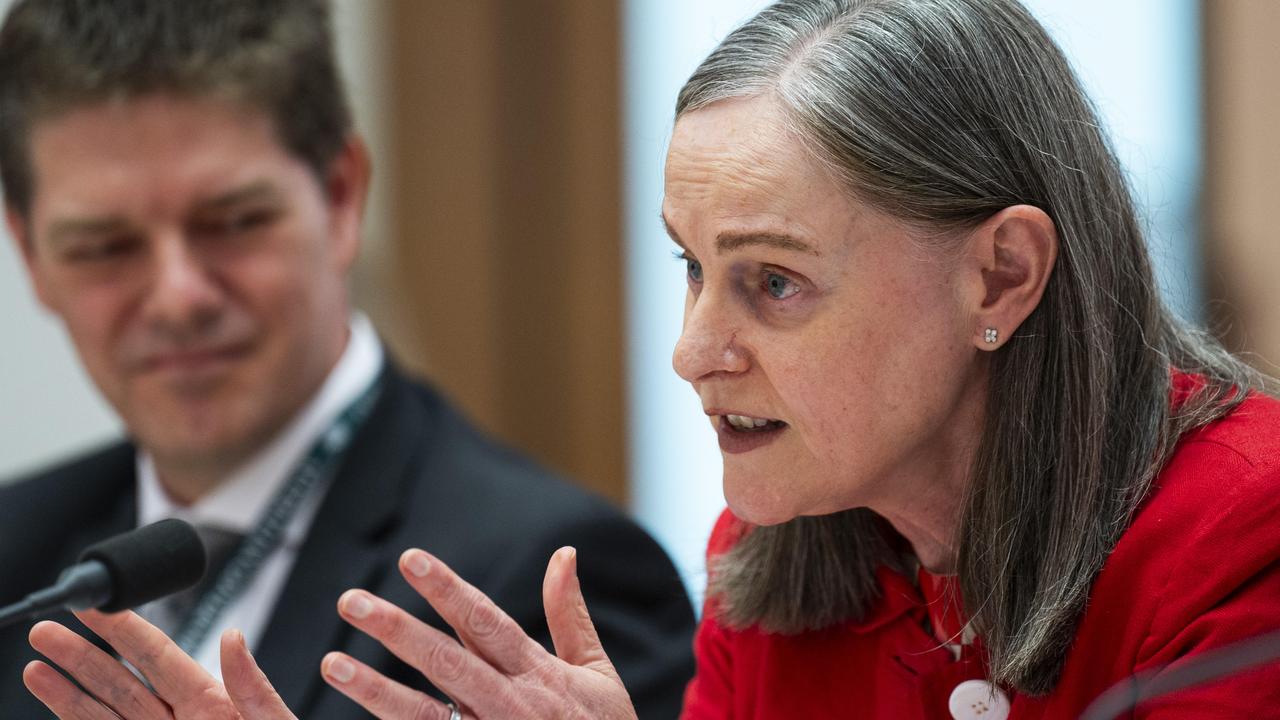The Treasurer did not ask public servants to overhaul the stage 3 tax cuts, rather the department came up with the idea, an inquiry into cost-of-living has been told.
Senior public servants from the departments of Treasury and finance were on Monday grilled over the timeline of the Albanese government’s contentious changes to the legislated stage 3 tax cuts.
Although internal Labor polling suggests the majority of Australians are happy with the revised plan, which delivers tax cuts to low- and middle-income Australians at the expense of higher income earners, Anthony Albanese has borne the brunt of backlash over his “broken promise” to deliver the original plan in full.
The Prime Minister has maintained that the changes reflected the economic climate and were the best method to dole out cost-of-living relief without adding to inflation, as recommended by Treasury.
Public servants backed those claims under grilling from opposition finance spokeswoman Jane Hume.
Treasury deputy secretary for revenue Diane Brown said Jim Chalmers had first asked secretary Steven Kennedy to consider further cost-of-living measures in mid-December.
Ms Brown indicated there may not have been a written request, but the pair did have a meeting.
After receiving the request on December 11, staff worked through the summer to consider options. Ms Brown said Dr Kennedy had “been thinking about how to provide cost-of-living relief in a way that didn’t add to inflationary pressures”.
“He (Dr Kennedy) was interested and had mentioned to us around roughly the same time that he would like the department to think about whether adjusting the personal income tax rates and thresholds could provide broadbased relief to all taxpayers in a way that didn’t add inflation,” she said.
“We were concerned that bracket creep would still be returned and so the envelope for returning bracket creep was roughly the same.”
The department handed their research to the Treasurer on Saturday, January 20 – the weekend before cabinet considered, and adopted, the changes on Tuesday, January 23.
Mr Albanese announced the changes a day later.
Senator Hume put to Ms Brown the process had been rushed and Mr Albanese had lied to Australians and potentially implicated the department in the process.
Ms Brown said that was not the case.
When Senator Hume noted Mr Albanese had maintained the government’s position on stage 3 “had not changed” just days before Treasury began looking at cost of living, Ms Brown said it had not been the government’s idea to change the tax cuts.
She said the department was prepared for its advice to not be listened to if that was what the government decided.
“The department decided that the best way to do that would be through changing personal rates and thresholds,” Ms Brown said.
“We thought that was the best way to both return bracket creep, to provide broad cost-of-living relief and to do so in a way that did not add to inflationary pressures as well as the labour supply benefits.”
Questioned over why the cabinet didn’t get the proposal 10 days in advance – as is typical and explained in the cabinet handbook – Ms Brown said the rule didn’t apply to the stage 3 changes because they were deemed a short notice submission.
Senator Hume pointed to the section of the handbook explaining the perceived risks of such submissions, citing: “It increases the risk that the cabinet’s decision will result in unforeseen and unintended consequences. It weakens the ability of the cabinet to apply scrutiny from a whole-of-government perspective and ultimately undermines the cabinet system itself.”
Ms Brown said that line of questioning was better suited for ministers or the department of Prime Minister and Cabinet.
She said stage 3 had been a consideration during previous budgets, but there had not been a discussion about changing the tax cuts until this summer.
Ms Brown said the changes were “broadly revenue neutral”, but Senator Hume pressed her on an additional $28bn in tax being taken over the next 10 years.
Officials said over a decade, “the bottom deciles will be better off in the medium term”.
While 84 per cent of Australian taxpayers will be better off under Labor’s plan, that will decline to 70 per cent over the decade.
Senator Hume asked if Treasury was working on advice, or preparing options, for the government to change negative gearing, capital gains tax or other housing-based taxation policies. Ms Brown said the department was “always looking at the operation of the tax system”.
“But there has been no direction … to change any of those arrangements,” Ms Brown said.
